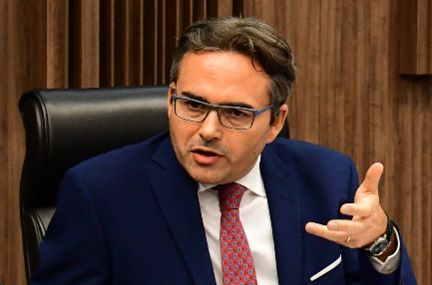Studying at the University of Verona
Here you can find information on the organisational aspects of the Programme, lecture timetables, learning activities and useful contact details for your time at the University, from enrolment to graduation.
Academic calendar
The academic calendar shows the deadlines and scheduled events that are relevant to students, teaching and technical-administrative staff of the University. Public holidays and University closures are also indicated. The academic year normally begins on 1 October each year and ends on 30 September of the following year.
Course calendar
The Academic Calendar sets out the degree programme lecture and exam timetables, as well as the relevant university closure dates..
| Period | From | To |
|---|---|---|
| 1° periodo di lezioni - 12 CFU | Sep 23, 2019 | Dec 14, 2019 |
| 1° periodo di lezioni | Sep 30, 2019 | Dec 14, 2019 |
| Periodo riservato ad eventuali recuperi di lezioni - dicembre 2019 | Dec 16, 2019 | Dec 17, 2019 |
| 2° periodo di lezioni - febbraio/aprile 2020 - 12 CFU | Feb 6, 2020 | Apr 6, 2020 |
| 2° periodo di lezioni - febbraio/aprile 2020 | Feb 10, 2020 | Apr 6, 2020 |
| 2° periodo di lezioni - aprile/maggio 2020 | Apr 15, 2020 | May 7, 2020 |
| 2° periodo di lezioni - aprile/maggio 2020 - 12 CFU | Apr 15, 2020 | May 12, 2020 |
| Periodo riservato ad eventuali recuperi di lezioni - maggio 2020 | May 8, 2020 | May 9, 2020 |
| Session | From | To |
|---|---|---|
| Sessione straordinaria - studenti f.c. e insegnamenti del 1° periodo | Dec 18, 2019 | Dec 23, 2019 |
| Sessione invernale - 1° appello | Jan 8, 2020 | Jan 17, 2020 |
| Sessione invernale - 2° appello | Jan 28, 2020 | Feb 6, 2020 |
| Sessione straordinaria - studenti f.c. - aprile 2020 | Apr 7, 2020 | Apr 9, 2020 |
| Sessione estiva - 3 appelli | May 12, 2020 | Jul 25, 2020 |
| Sessione autunnale - 1° appello | Aug 26, 2020 | Sep 5, 2020 |
| Sessione autunnale - 2° appello | Sep 21, 2020 | Sep 30, 2020 |
| Session | From | To |
|---|---|---|
| Sessione autunnale - ottobre 2019 | Oct 21, 2019 | Oct 22, 2019 |
| Sessione invernale - febbraio 2020 | Feb 7, 2020 | Feb 7, 2020 |
| Sessione invernale - marzo 2020 | Mar 18, 2020 | Mar 20, 2020 |
| Sessione estiva - giugno 2020 | Jun 25, 2020 | Jun 26, 2020 |
| Period | From | To |
|---|---|---|
| Festa di Ognissanti | Nov 1, 2019 | Nov 1, 2019 |
| Festa dell'Immacolata | Dec 8, 2019 | Dec 8, 2019 |
| Vacanze di Natale | Dec 24, 2019 | Jan 6, 2020 |
| Vacanze di Pasqua | Apr 10, 2020 | Apr 14, 2020 |
| Festa della Liberazione | Apr 25, 2020 | Apr 25, 2020 |
| Festa del lavoro | May 1, 2020 | May 1, 2020 |
| Festa del Santo Patrono | May 21, 2020 | May 21, 2020 |
| Festa della Repubblica | Jun 2, 2020 | Jun 2, 2020 |
Exam calendar
Exam dates and rounds are managed by the relevant Law Teaching and Student Services Unit.
To view all the exam sessions available, please use the Exam dashboard on ESSE3.
If you forgot your login details or have problems logging in, please contact the relevant IT HelpDesk, or check the login details recovery web page.
Academic staff
 bernardo.calabrese@univr.it
bernardo.calabrese@univr.it
 andrea.favaro@univr.it
andrea.favaro@univr.it
 roberto.flor@univr.it
roberto.flor@univr.it
 stefano.gatti@univr.it
stefano.gatti@univr.it
 rita.maggi@univr.it
rita.maggi@univr.it
 giuliano.stasio@univr.it
giuliano.stasio@univr.it
 rosamaria.vadala@univr.it
rosamaria.vadala@univr.it
 isabella.zambotto@univr.it
isabella.zambotto@univr.it
Study Plan
The Study Plan includes all modules, teaching and learning activities that each student will need to undertake during their time at the University.
Please select your Study Plan based on your enrollment year.
1° Year
| Modules | Credits | TAF | SSD |
|---|
Roman Law Institutions
History of Medieval and Modern Law
2° Year activated in the A.Y. 2020/2021
| Modules | Credits | TAF | SSD |
|---|
1 module to be chosen between the following1 module to be chosen between the following1 module to be chosen between the following3° Year activated in the A.Y. 2021/2022
| Modules | Credits | TAF | SSD |
|---|
4° Year activated in the A.Y. 2022/2023
| Modules | Credits | TAF | SSD |
|---|
1 module to be chosen between the following5° Year activated in the A.Y. 2023/2024
| Modules | Credits | TAF | SSD |
|---|
1 module to be chosen between the following| Modules | Credits | TAF | SSD |
|---|
Roman Law Institutions
History of Medieval and Modern Law
| Modules | Credits | TAF | SSD |
|---|
1 module to be chosen between the following1 module to be chosen between the following1 module to be chosen between the following| Modules | Credits | TAF | SSD |
|---|
| Modules | Credits | TAF | SSD |
|---|
1 module to be chosen between the following| Modules | Credits | TAF | SSD |
|---|
1 module to be chosen between the following| Modules | Credits | TAF | SSD |
|---|
5 modules to be chosen among the following during the 3rd, 4th and 5th year (in detail: 1 module in the 3rd year; 1 module in the 4th year; 3 modules in the 5th year)Legend | Type of training activity (TTA)
TAF (Type of Educational Activity) All courses and activities are classified into different types of educational activities, indicated by a letter.
Type D and Type F activities
Le attività che consentono l’acquisizione dei crediti riservati alle attività formative a libera scelta dello studente (TAF D) sono le seguenti:
• Un insegnamento previsto nell’elenco delle attività formative (TAF D) allegato al piano didattico del corso di laurea Magistrale in Giurisprudenza;
• Un insegnamento attivato nei Corsi di studi afferenti al Collegio di Giurisprudenza;
• Un laboratorio didattico attivato nei Corsi di studi afferenti al Collegio di Giurisprudenza;
• Un laboratorio didattico attivato nei Corsi di studi afferenti al Dipartimento di Scienze Giuridiche;
• Un insegnamento previsto dall’Offerta Formativa di Ateneo, non impartito nell’ambito dei corsi di studi afferenti al Collegio di Giurisprudenza: il riconoscimento dei crediti acquisiti sarà subordinato alla preventiva presentazione di coerenti programmi formativi valutati dalla Commissione istruttoria per la didattica e approvati dal Collegio didattico.
• Attività formative organizzate dai singoli docenti del Collegio di Giurisprudenza o del Dipartimento di Scienze Giuridiche: previa approvazione del Collegio ad esse verrà attribuito, dopo un’apposita verifica, un credito per ogni 6 ore di frequenza obbligatoria;
• Attività formative che implicano la partecipazione a convegni o seminari organizzati sotto il “logo” del Dipartimento di Scienze Giuridiche o dell’Ateneo: devono essere preventivamente approvate dal Collegio di Giurisprudenza indicando un docente di riferimento del Collegio di Giurisprudenza ovvero del Dipartimento di Scienze Giuridiche. Un credito per ogni giornata di convegno o di seminario si acquisisce dopo apposita verifica che dimostri l’avvenuta fruizione culturale del tema del convegno o del seminario.
Le attività che consentono l’acquisizione dei crediti riservati alle ulteriori attività formative (TAF F) sono le seguenti:
• Informatica (3 cfu)
• Stage;
• Un laboratorio didattico attivato nei Corsi di studi afferenti al Collegio di Giurisprudenza;
• Un laboratorio didattico attivato nei Corsi di studi afferenti al Dipartimento di Scienze Giuridiche.
Al link https://www.univr.it/it/i-nostri-servizi/segreterie-studenti/giurisprudenza#categdoc_7103 la modulistica per l'inserimento di attività non selezionabili in autonomia dallo studente in sede di compilazione del piano degli studi.
| years | Modules | TAF | Teacher |
|---|---|---|---|
| 4° 5° | THE PRESENT AND THE FUTURE OF THE PLANET. ECOLOGY, SUSTAINABILITY, POLICIES | D |
Laura Calafà
(Coordinator)
|
| 4° 5° | Univero’ 2019 | D |
Tommaso Dalla Massara
(Coordinator)
|
Corporate and Economic Criminal Law (2021/2022)
Teaching code
4S008474
Academic staff
Coordinator
Credits
6
Also offered in courses:
- Criminal Economic Law of the course Combined Bachelor's + Master's degree in Law
- Criminal Economic Law of the course Bachelor’s degree in Law Services
Language
Italian
Scientific Disciplinary Sector (SSD)
IUS/17 - CRIMINAL LAW
Period
1° periodo lezioni (1B) dal Nov 5, 2021 al Dec 16, 2021.
Learning outcomes
The course aims at exploring how criminal law impacts the (national and supranational) legal framework governing economic activities, especially by means of provisions designed to guarantee the freedom of private economic initiative and to protect the various interests involved in the exercise of that freedom. During the course, the fundamental notions and the regulatory principles of the field will be taught, as to enable students to be familiar with the operative problems arising out the interaction between economic initiatives and criminal law legal monitoring and, in general, the tension between economy and criminal law. Students will develop the capability to critically assess the application of criminal law by understanding the complexity that nowadays characterize economic activities.
Program
MODULE 1 (Prof. Roberto Flor)
1. General Part. Notion and elements of the economic criminal law
2. Criminal corporate liability. Contents and structure of the dlgs 231/2001
3. The corporate criminal offences and related to the financial markets
MODULE 2 (Prof. Ivan Salvadori)
4. The bankruptcy criminal offences
5. Criminal offences related to safety and health at work
6. Criminal offences against the public economy, industry or commerce
Teaching methods
Students attending classes: frontal classroom lessons concerning the basis and fundamental categories of Economic Criminal Law, the interpretation of the offences in economic crime areas and their judicial implementation. They will receive also indications about possible alternative references in order to prepare the exam or to integrate the contents of the lessons.
Workshops or seminars will concern specific case studies, following the Problem Based Solving (PBS) method.
The course combines frontal classroom lessons and on-line teaching, in particular: 30 hours (5 CFU) frontal classroom lessons and 6 hours (1 CFU) online teaching.
The frontal classroom lessons will concern all the parts of the program.
The online teaching will concern specific case studies regarding the topics studied during the classroom lessons, following the Problem Based Solving (PBS) method.
The materials of the lessons, including ppt presentations, video, scientific works and case studies, will be published on the moodle of the course.
Students not-attending classes are invited to contact the Professor in order to receive support and relevant references for the preparation of the final exam.
Erasmus students must fix an appointment with the Professor in order to select an individual program, taking into consideration also the State of origin.
Materials
The materials of the lessons, including ppt presentations, video, scientific works and case studies, will be published on the moodle of the course.
All students my access to moodle of the course (using personal ID and password).
Recommended Books
MAZZACUVA N., AMATI E., Diritto penale dell’economia, 5° ed., Milano, 2020
BLAIOTTA R., Diritto penale e sicurezza del lavoro, Torino, 2020
FIANDACA G., MUSCO E., Diritto penale. Parte speciale, vol. I, 6° ed., Bologna, 2021, limitatamente al cap. 9: “Delitti contro l’economia pubblica, l’industria e il commercio”.
Students attending classes will receive the indications about the relevant parts, or on alternative scientific articles.
Students not-attending classes are invited to contact the Professors.
Office hours
Office hours are published on the Professor's personal webpage. Students may ask for a Zoom meeting.
Official language
Italian.
Bibliography
Examination Methods
The final exam consists of an oral examination.
Students attending classes: 1 written exam (self assessment) on the topics of the Module 1 (50%).
If the mid-term exam will be positive: final oral exam only on the topics of the Module 2 (50%).
If the mid-term exam will be negative: final oral examination will cover the whole program (100%). The examination will consist of at least one open question for each part of the program, which are of equal importance.
Students attending classes may choose, however, to sit the final oral exam on the entire program. The examination will consist of at least one open question for each part of the program, which are of equal importance.
Students not attending classess: oral final exam on the entire program (100%). The examination will consist of at least one open question for each part of the program, which are of equal importance.
Erasmus students must fix an appointment with the Professor in order to identify the individual valuation method.
The evaluation criteria are the following:
level and depth of study and understanding;
language properties;
capacity to connect systematically the understanding;
analitycal and arguing ability.
Grades are awarded on a scale from 18 to 30, where 30 is the highest grade and 18 is the lowest grade to pass the exam. In case of an excellent knowledge and a high level of problem-solving capacity, the candidate may earn the highest grade with “cum laude” honor.
The official language is Italian.
Career prospects
Module/Programme news
News for students
There you will find information, resources and services useful during your time at the University (Student’s exam record, your study plan on ESSE3, Distance Learning courses, university email account, office forms, administrative procedures, etc.). You can log into MyUnivr with your GIA login details: only in this way will you be able to receive notification of all the notices from your teachers and your secretariat via email and also via the Univr app.
Language skills
Graduation
Internships
Internships are aimed at enabling students to gain direct knowledge of the world of work and to acquire specific professional skills.
Internships are carried out under the responsibility of an individual lecturer, and can be carried out in professional firms, public administration bodies and companies recognised by the University of Verona.
Any CFU credits gained by doing internships will be recognised and recorded by the University in accordance with the relevant University regulations in force (Regolamento d’Ateneo per il riconoscimento dei crediti maturati negli stage universitari).
For further information on internships, please go to: https://www.univr.it/it/i-nostri-servizi/stage-e-tirocini.
Student mentoring
Dissertation
Gestione carriere
Student login and resources
Modalità e sedi di frequenza
La frequenza non è obbligatoria.
Maggiori dettagli in merito all'obbligo di frequenza vengono riportati nel Regolamento del corso di studio disponibile alla voce Regolamenti nel menu Il Corso. Anche se il regolamento non prevede un obbligo specifico, verifica le indicazioni previste dal singolo docente per ciascun insegnamento o per eventuali laboratori e/o tirocinio.
È consentita l'iscrizione a tempo parziale. Per saperne di più consulta la pagina Possibilità di iscrizione Part time.
La sede di svolgimento delle lezioni e degli esami è il Palazzo e aule didattiche di giurisprudenza

 0458127455
0458127455




















































